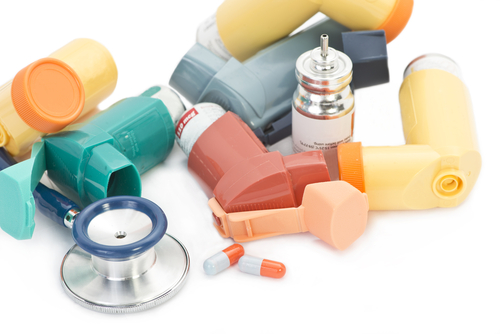Trial to Test Higher Dose of Inhaled Pirfenidone in All Participants
Written by |

All patients in a Phase 1/2 trial examining two doses of AP01, an inhaled version of pirfenidone for the treatment of idiopathic pulmonary fibrosis (IPF), are switching to the higher dose based on the recommendation of a data safety monitoring board (DSMB).
Avalyn Pharma, AP01’s developer, reported that lung function stabilized among participants taking the high (100 mg) dose, as measured by forced vital capacity (FVC) over a 24-week evaluation period, while those on the lower (50 mg) dose progressively lost function.
Based on this result, the DSMB — an independent group of experts who monitor patient safety and treatment effectiveness — recommended that all participants in the trial should move to the high dose treatment during the ongoing 12-month extension period.
“We are pleased by the efficacy and safety profile we have seen to date with aerosolized pirfenidone in 91 patients over 24 weeks,” A. Bruce Montgomery, MD, Avalyn’s CEO, said in a press release. “The six month FVC data of the high dose is very promising as well as the overall safety profile to date.”
According to Avalyn, orally administered pirfenidone — as is the case with Esbriet, marketed by Genentech and approved in 2014 for the treatment of IPF — requires a large dose to reach effective levels in the lungs, which can result in substantial side effects.
Delivering the medication directly to the lungs might be more efficient, require smaller doses, and lead to fewer side effects.
Thus, to maximize pirfenidone’s therapeutic potential and avoid adverse effects associated with oral delivery, Avalyn reformulated this therapy so that it could be delivered through nebulization as an inhaled aerosol.
An earlier Phase 1 trial showed that AP01 was safe and well-tolerated at a lower dose in a group of 38 healthy volunteers and six IPF patients. In the trial, an inhaled dose equivalent to 1/16 of the standard oral dose delivered 35 times higher peak lung levels of pirfenidone. Trial participants received AP01 via an investigational eFlow Nebulizer System by Pari Pharma.
Now, Avalyn has reported that all volunteers (91 IPF patients) in the latest Phase 1/2 trial (ACTRN12618001838202, taking place in Australia) have completed the initial 24-week evaluation period and most have opted to continue in the extension study.
Based on the DSMB’s recommendation, all participants will receive the 100 mg dose during the ongoing 12-month extension period.
Data from the trial confirmed that AP01 is safe and well-tolerated. Side effects often attributed to Esbriet occurred in under 10% of patients treated with AP01. Adverse events with a frequency greater than 10% were cough (24%), rash (18%), and upper respiratory tract infection (18%).
Avalyn plans to present the trial’s 24-week safety and efficacy data at an upcoming scientific meeting.
“Despite the 2014 approval of two oral antifibrotic therapies, IPF and other fibrotic lung diseases remain fatal diseases with substantial unmet need,” Montgomery said. “We hope to establish improved tolerability and long term efficacy with aerosolized pirfenidone in Phase 3 trials to be initiated in 2021.”






